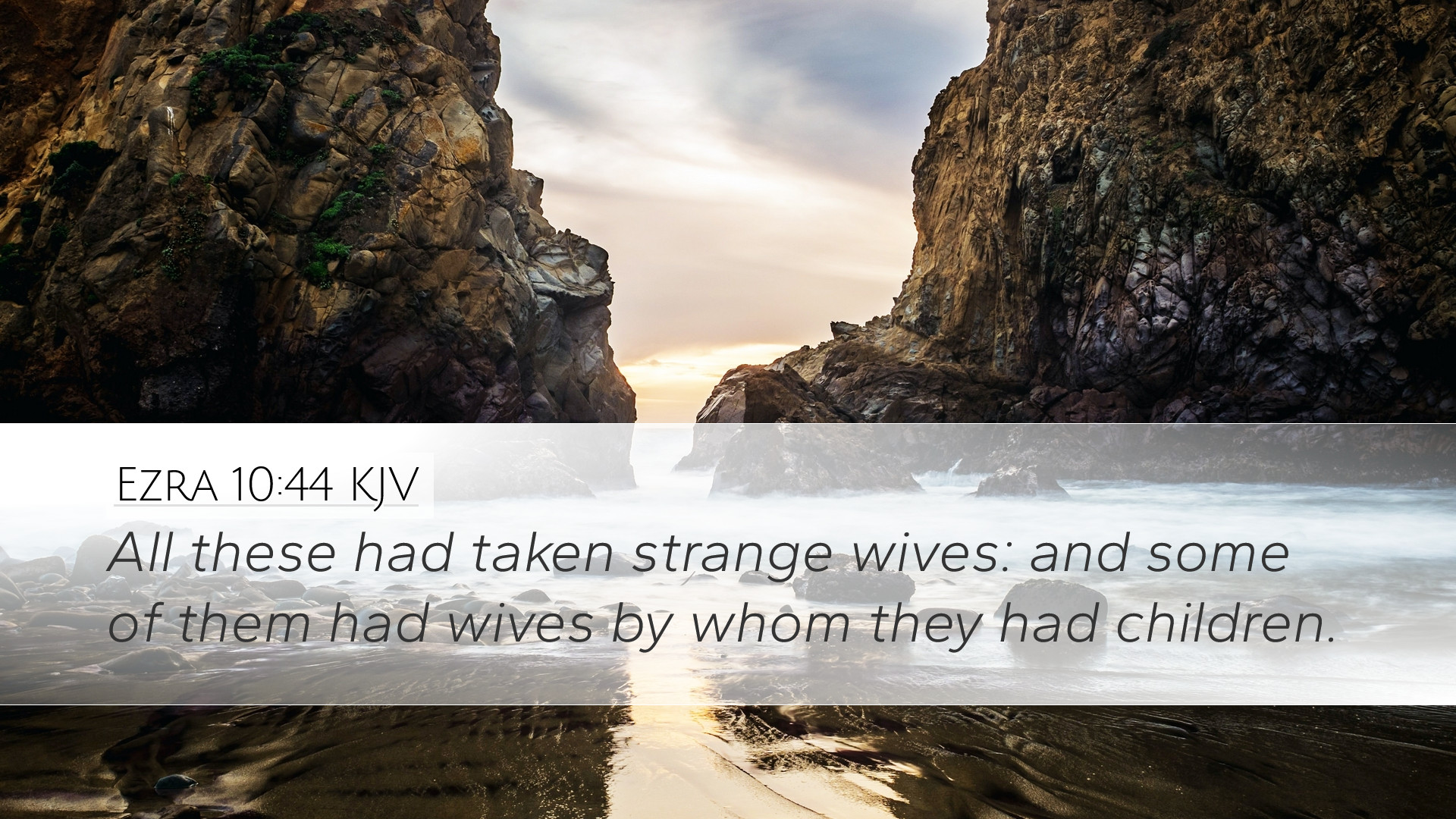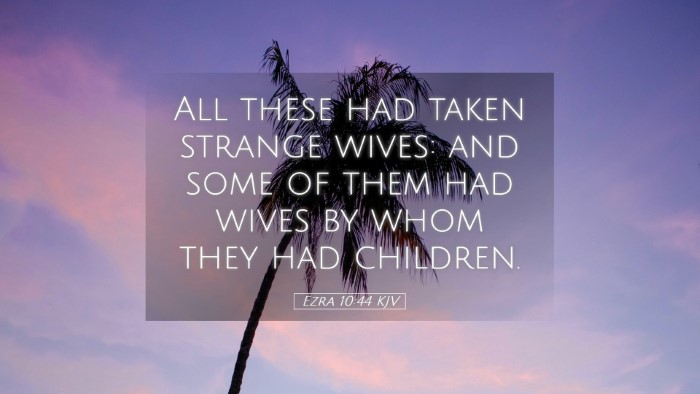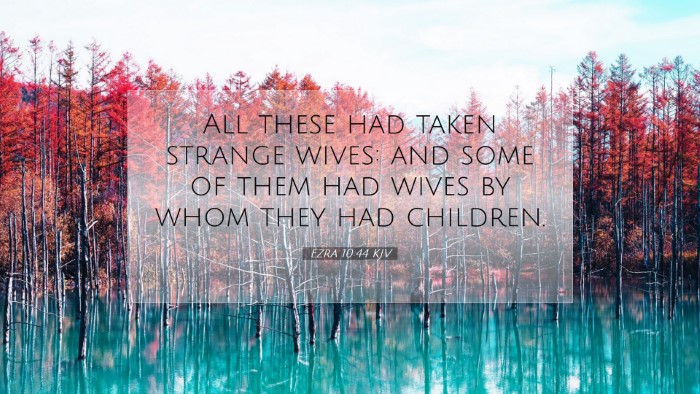Commentary on Ezra 10:44
Verse Context: Ezra 10:44 states, "All these had taken strange wives: and some of them had wives by whom they had children." This verse is part of a significant passage where Ezra addresses the issue of intermarriage with foreign nations, which had become a complex problem for the returning exiles.
Overview and Historical Setting
The book of Ezra recounts the return of the Jewish exiles from Babylon and their efforts to restore their identity, worship, and community in Jerusalem. Chapter 10 marks a turning point where Ezra, upon learning of the intermarriages among the people, calls for action and repentance. This task is crucial for the reestablishment of a holy community dedicated to Yahweh.
Insights from Public Domain Commentaries
Matthew Henry's Commentary
Matthew Henry emphasizes the gravity of the situation faced by the Jewish people, noting that the marriages referred to in this verse represented a breach of the covenant relationship established between God and Israel. He elaborates on the spiritual implications of these alliances, suggesting that they not only risked compromising the purity of worship but also the moral integrity of the community.
Henry points out that these "strange wives" often come from nations that worshipped idols, leading the Israelites away from their devotion to Yahweh. The taking of foreign wives is not merely a social issue; it represents a theological crisis. He highlights the necessity of maintaining spiritual boundaries to preserve the community's identity and mission.
Albert Barnes' Notes on the Bible
Albert Barnes provides a detailed analysis of the verse, stressing the consequences of mixed marriages in the history of Israel. Barnes explains that these unions often led to divided loyalties and idolatry, which had grave repercussions for previous generations.
He notes that the phrase "some of them had wives by whom they had children" indicates that the problem was not only about the act of marrying foreign women but also about the implications for future generations. This teaches valuable lessons about the importance of guiding the next generation in faithfulness to God. Barnes urges that the integrity of one's faith community is paramount, as the spiritual direction of families shapes the community's future.
Adam Clarke's Commentary
Adam Clarke delves deeper into the cultural and legal aspects of the marriages mentioned in Ezra 10:44. He interprets the phrase "strange wives" as those women from the surrounding nations who practiced foreign religions. Clarke argues that the covenantal law was clear regarding the prohibition of such unions and how it reflected God's desire for His people's holiness and separation from pagan practices.
Clarke also highlights the emotional turmoil and the social ramifications of these divorces for those who were compelled to separate from their foreign wives. He recognizes the complexity of human relationships and the painful decisions that arise from a commitment to God’s law. His sensitivity to the personal struggles involved brings a pastoral dimension to the interpretation of this passage.
Theological Implications
The issue raised in Ezra 10:44 transcends historical context and speaks directly to contemporary concerns about faithfulness and identity. Within the Christian tradition, this passage invites serious reflection on the implications of partnerships and relationships that may detract from one’s commitment to God. Pastors and church leaders are reminded of the need to promote strong biblical teachings regarding marriage and relationships, aligning them with the principles of faithfulness, sanctity, and covenant loyalty.
Practical Applications
- Reaffirming Covenant Relationships: The church is called to emphasize the importance of marrying within the faith, reflecting a commitment to God and His community.
- Setting Boundaries: Believers are encouraged to recognize and respect boundaries that keep their worship life distinct from the influences of secular and pagan practices.
- Providing Support in Difficult Decisions: Just as Ezra faced challenging realities, modern believers may encounter difficult social situations regarding relationships. Church communities should offer support, understanding, and guidance.
Conclusion
Ezra 10:44 serves as a profound reminder of the importance of maintaining purity and fidelity to God's ways. The insights drawn from the commentaries of Matthew Henry, Albert Barnes, and Adam Clarke provide a comprehensive view that enriches our understanding of this verse. Through careful examination of both historical context and theological application, we are called to reflect on our own practices and commitments as we seek to faithfully follow God in our contemporary context.


